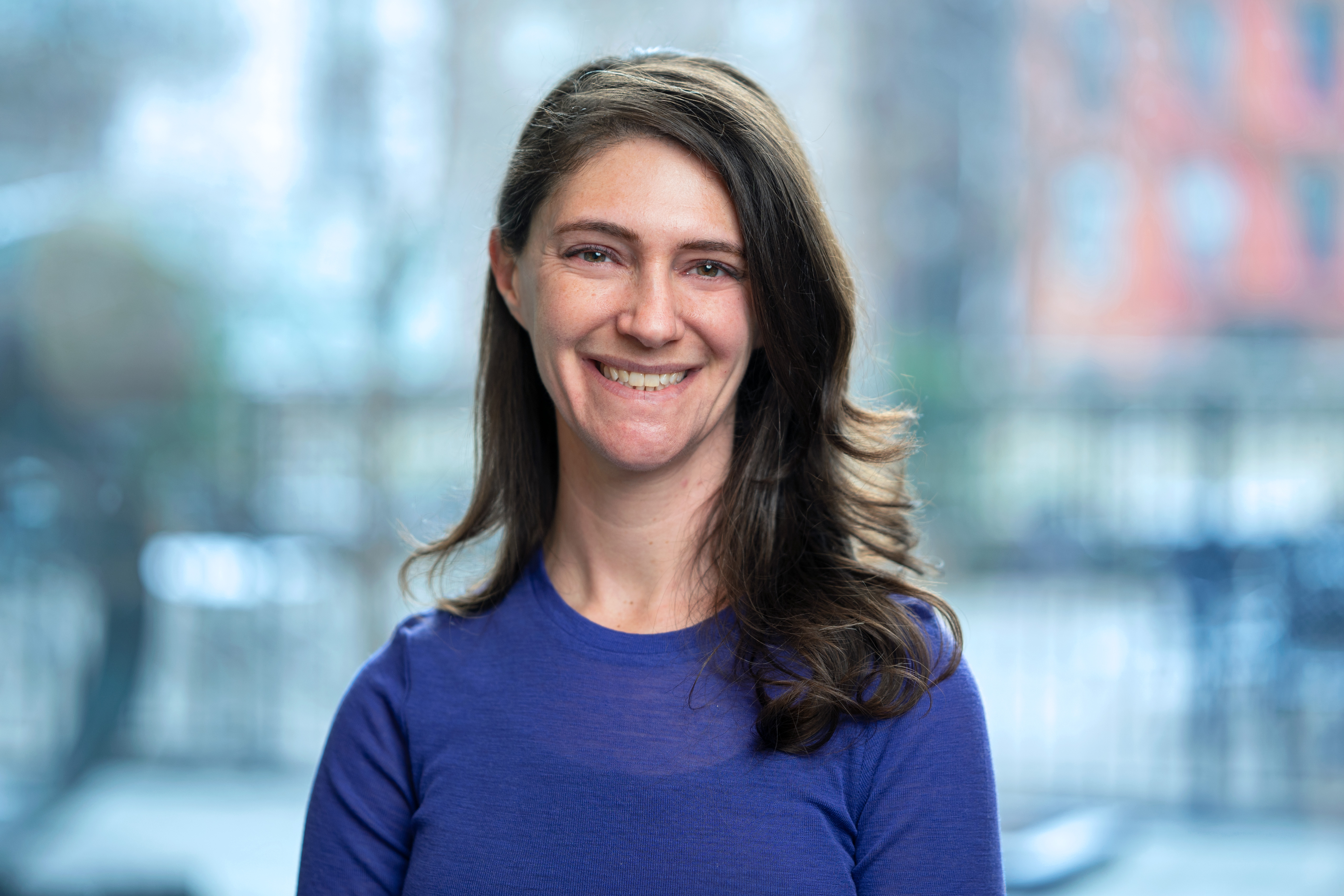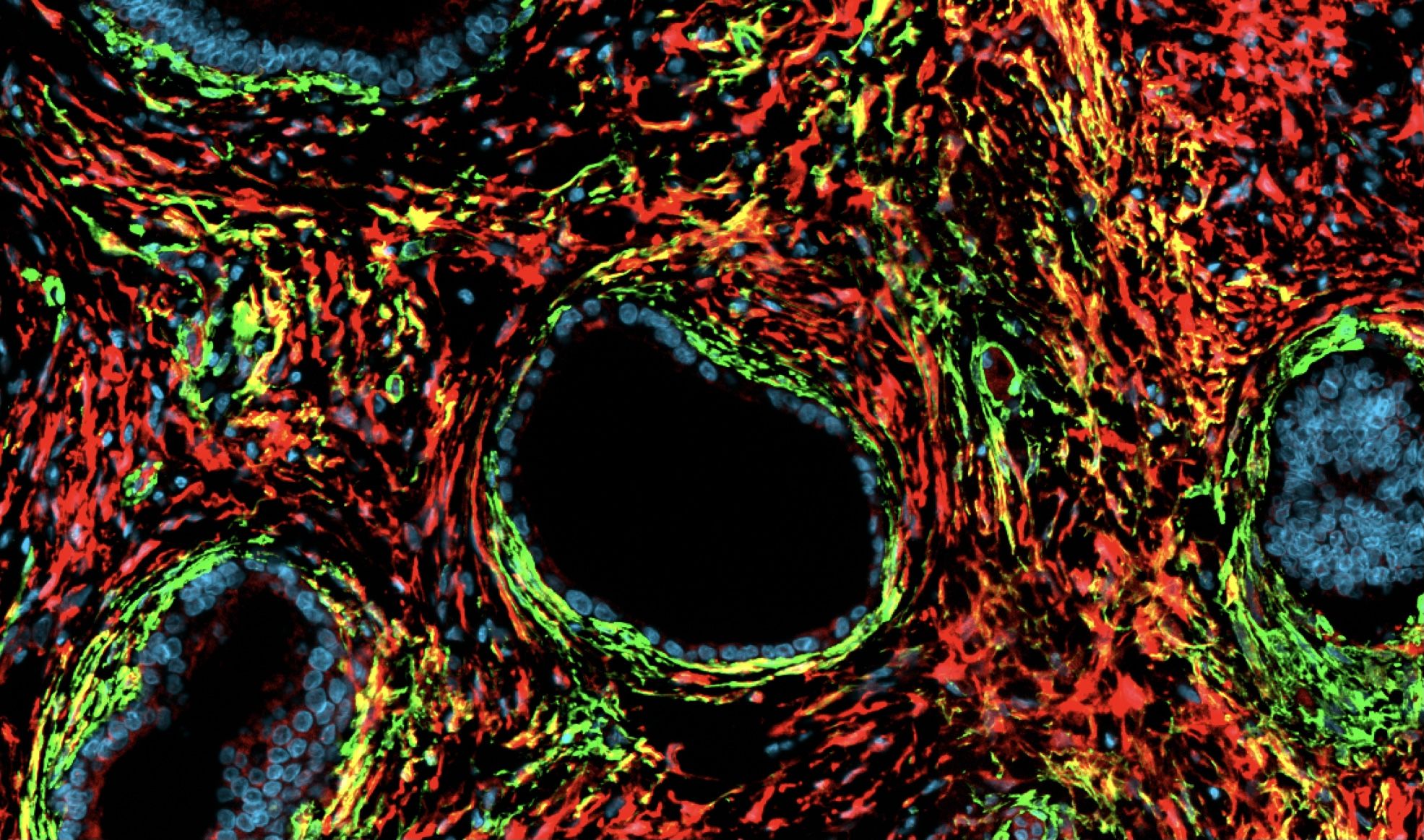
Research
A look at pancreatic cancer under the microscope reveals that the cancer cells themselves are vastly outnumbered by non-malignant cell types such as fibroblasts and immune cells, together known as the tumor microenvironment. These cells communicate with cancer cells and with each other, profoundly influencing cancer progression and response to therapy. The long-term goal of the Sherman lab is to identify mechanisms in the tumor microenvironment that promote pancreatic cancer progression or therapy resistance, and to target those mechanisms to improve outcomes for patients. Our research focuses on the tumor-permissive molecular mechanisms underlying cancer-associated fibroblast function as well as immune suppression, and how these stromal mechanisms affect cell fate and function in the pancreatic epithelium with respect to gene expression, metabolism, and cancer cell state. Our laboratory uses a multidisciplinary approach to investigate the mechanistic underpinnings of the pancreatic tumor microenvironment, including mouse models of pancreatic cancer, three-dimensional cell culture systems such as patient-derived organoids, and diverse molecular- and cell-biological techniques enabling investigation of the mechanisms underlying tumor-stroma interaction.
Figure 1. PDAC Costain

Current Projects:
- Analyzing microenvironmental regulation of pancreatic tumor evolution
- Dissecting stromal evolutionary routes in primary versus metastatic microenvironments
- Targeting cellular hierarchies in the pancreatic cancer immune microenvironment
Bio
Mara earned her bachelor’s degree in biological sciences from Cornell University in 2005 and her Ph.D. in molecular biology from UCLA in 2010. She then moved to the Salk Institute for postdoctoral training in the lab of Ron Evans, focused on transcriptional regulation of the pancreatic tumor microenvironment. She was appointed Assistant Professor of Cell, Developmental & Cancer Biology at Oregon Health & Science University in 2016. In 2023, she was appointed Associate Member of Cancer Biology & Genetics at Memorial Sloan Kettering Cancer Center.
Distinctions:
- Lustgarten Foundation Therapeutics Focused Research Program
- Pew-Stewart Scholar Award
- American Cancer Society Research Scholar Grant
- V Foundation V Scholar
- NIH/NCI K99/R00 Pathway to Independence Award
Selected Publications:
Abrego J.*, Sanford-Crane H.*, Oon C., Xiao X., Betts C.B., Sun D., Nagarajan S., Bhattacharyya S., Xia Z., Coussens L.M., Tontonoz P., Sherman M.H. (2022). A cancer cell-intrinsic GOT2-PPARd axis suppresses antitumor immunity. Cancer Discovery. 12(10):2414-2433. (*Co-first author)
https://aacrjournals.org/cancerdiscovery/article/12/10/2414/709426/A-Can...
Helms E.J., Berry M.W., Chaw R.C., DuFort C.C., Sun D., Onate M.K., Oon C., Bhattacharyya S., Sanford-Crane H., Horton W., Finan J.M., Sattler A., Makar R., Dawson D.W., Xia Z., Hingorani S.R., Sherman M.H. (2022). Mesenchymal lineage heterogeneity underlies non-redundant functions of pancreatic cancer-associated fibroblasts. Cancer Discovery. 12(2):484-501.
https://aacrjournals.org/cancerdiscovery/article/12/2/484/678494/Mesench...
Bhattacharyya S., Oon C., Kothari A., Horton W., Link J., Sears R.C., Sherman M.H. (2020). Acidic fibroblast growth factor underlies microenvironmental regulation of MYC in pancreatic cancer. Journal of Experimental Medicine. 217(8):e20191805.
https://rupress.org/jem/article/217/8/e20191805/151790/Acidic-fibroblast...
Auciello F.R.#, Bulusu V.#, Oon C., Tait-Mulder J., Berry M., Bhattacharyya S., Tumanov S., Allen-Petersen B.L., Link J., Kendsersky N.D., Vringer E., Schug M., Novo D., Hwang R.F., Evans R.M., Nixon C., Dorrell C., Morton J.P., Norman J.C., Sears R.C., Kamphorst J.J.*, Sherman M.H.*. (2019). A stromal lysolipid-autotaxin signaling axis promotes pancreatic tumor progression. Cancer Discovery. 9(5):617-627. (#Co-first author, *Co-corresponding author)
https://aacrjournals.org/cancerdiscovery/article/9/5/617/41859/A-Stromal...
